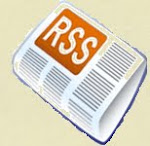
Some managers have a policy of shaking hands and saying thanks when they hand out checks to their employees. It’s humbling to be on the receiving end of this. I worked for a company where all managers were required to do this. I knew this, but still felt genuinely thanked by most managers.
There was one manager who quite obviously felt corny saying 'thank you' when distributing checks, perhaps knowing that I knew he was required to do this, thus not feeling genuine.
Frankly, his cynical nature was off-putting. I felt less than thanked. It was worse than had nothing been said at all.
In the world and in your workplace, we are a community filled with a mixed bag of nuts. We’re all different people in how we think, perceive, and make decisions. Sometimes it’s hard to get over differences especially when someone who is so different from you seems to make your life difficult.
How could you make that better?
How could you communicate what you need to help this other person work with you better? (and visa versa by the way!)
Since this is the week of Thanksgiving, I’d like to share with you an exercise. Starting with your work colleagues and possibly including the extended family you’ll be rubbing shoulders with Thursday (and perhaps the extended family you’re avoiding Thursday!), then finishing with your immediate family, think about each person individually and consider three characteristics about them that you are grateful for.
Do they seem as bad as before?
This can only make seeing them next more bearable.. and perhaps take your relationships to whole new efficiencies.
Happy Thanksgiving everyone!





